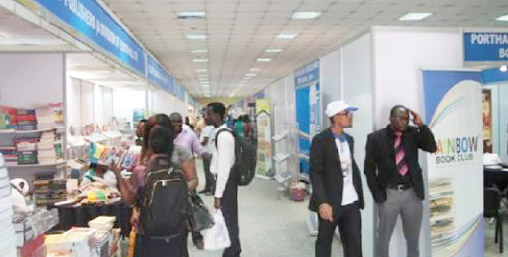Nigerian authors gathered again on May 13 during the week-long Lagos International Book Fair to discuss under the theme: ‘Everybody feeds on the author, but who feeds the author?’
This gathering is an important event on the calendar of the annual fair that brings book stakeholders from Nigeria and beyond together. Each year, Nigerian authors take the opportunity to deliberate on burning issues that trouble the book sector in the country. This year’s edition was not different.
Professor Kole Omotosho was on hand to deliver the keynote address in which he related the story of the formation of the Association of Nigerian Authors (ANA) in 1981 and disclosed that the idea behind it was to encourage Nigerian authors to have a central voice.
“Before the war in 1967, we had this association in place. But when our colleagues in the East left because of the crisis and the war, that left a big vacuum in the association. So, what Professor Chinua Achebe and the rest of us did in 1981 at the University of Nigeria, Nsukka (UNN) was more or less a rebirth of ANA. This is why I commend Lagos ANA for this authors’ groove every year. It is within the same spirit of keeping the sector active and relevant,” said Omotosho.
The professor of English found the Nigerian government complicit in its inability to keep the book industry on sound footing. He called out book pirates for keeping authors out of business.
Nobody, he said, knows how they do it, how they publish and pirate people’s works even before the writers begin to reap from the fruits of their labour.
Saying that this is a disturbing trend, he challenged Nigerian authors to keep telling their stories irrespective of whether the West accepts them or not.
“If you have a story to tell, to write, please do so. Everyone has a story to tell. There are lots of stories in the country. It doesn’t matter which political party is in power. What matters now is that corruption is in charge. But change must come, whether we like it or not. We cannot continue to live like this where we celebrate evil and eulogise those who bring us down. So, we have to write and expose these ills,” he declared.
Sam Omatseye, an author, critic and columnist with The Nation newspaper, chided the elders of the writing clan who could not mentor younger authors in a way to be able to carry on the mantle.
These days, it appears we have to wait for Britain or America to tell us who is a good writer among us, he said. “It usually takes America’s observation to tell us who is a good writer among us. It took America’s approval of the talent imbued in Chimamanda Adichie for Chinua Achebe to give vent to her writing prowess.”
He said his presence at the gathering was to inspire the author.
“The author has to be more proactive. The author has to read wide. As a reporter, I used to spare money to buy books to build my intellect. Even then, I used every spare time I had to read. It could be in a bus, in my spare time, in the office or at night before going to bed. Constant reading and inquisitiveness should be the habit of anyone who wants to be a writer,” he stated.
He, too, dwelt on the need to stop piracy and charged writers to establish book clubs through which they can prosper.
“When we do this, we can target schools, meet with the schools and harmonise on the modalities for this to function well. If we put our minds to it, we can achieve. We do not need writers like Ben Okri who have lost touch with their roots to tell us whether our stories are authentic or not. We have to write what we live and experience every day and what makes our stories authentic,” he added.
Dayo Alabi, a book publisher representing his clan at the event, traced the genesis of the decline in the fortunes of the book industry in Nigeria.
“When we started this book fair in 1998, the idea was to bring home what we used to attend in Zimbabwe and other book fairs around the world. If Zimbabwe could run an international book fair every year and attract the whole world, we can also do it. So, with the encouragement we got from Professor Chukwuemeka Ike, Otunba Lawal Solarin and others, the idea was berthed. Today, we are in the 16th edition,” he stated.
While berating some of his colleagues for not being trustworthy, he declared that not all publishers are bad, as some still publish, sell and declare profits to the writer.
“But what we all can do together is to combine forces to fight piracy. Piracy has killed creativity. It has reaped where it did not sow. A good book is published, but piracy makes a big mess of it within days. This is not a way to encourage the sector to grow,” Alabi said.
ANA national president, Denja Abdullahi, reminded his colleagues that the ‘Bring Back the Book’ programme put in place by the Federal government could not work because it was founded on a shaky foundation. “When you have such a programme without involving stakeholders in the book business, it will not work. You make all the noise, waste all the money, yet the books do not get to the targeted audience, it is a waste of time and money,” Abdullahi lamented.
At the end of the event, government got the blame for the near comatose state of the book sector. Many hinge that blame on, among other things, the fact that most of the public and community libraries in the country are dead.







